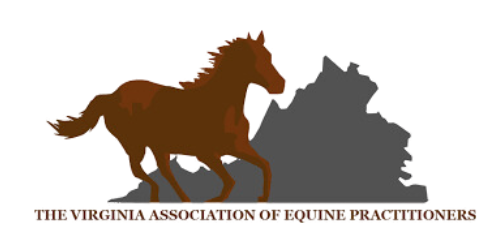Virginia Animal Laws
-
§ 3.2-6503: describes adequate care for companion and agricultural animals
Minimum standards
Agricultural animals: feed to prevent malnourishment, water to prevent dehydration, veterinary treatment
(i) overrides, overdrives, overloads, tortures, ill-treats, abandons, willfully inflicts inhumane injury or pain not connected with bona fide scientific or medical experimentation, or cruelly or unnecessarily beats, maims, mutilates, or kills any animal, whether belonging to himself or another;
(ii) deprives any animal of necessary food, drink, shelter or emergency veterinary treatment;
(iii) sores any equine for any purpose or administers drugs or medications to alter or mask such soring for the purpose of sale, show, or exhibition of any kind, unless such administration of drugs or medications is within the context of a veterinary client-patient relationship and solely for therapeutic purposes;
(iv) ropes, lassoes, or otherwise obstructs or interferes with one or more legs of an equine in order to intentionally cause it to trip or fall for the purpose of engagement in a rodeo, contest, exhibition, entertainment, or sport unless such actions are in the practice of accepted animal husbandry or for the purpose of allowing veterinary care
(v) willfully sets on foot, instigates, engages in, or in any way furthers any act of cruelty to any animal;
(vi) carries or causes to be carried by any vehicle, vessel or otherwise any animal in a cruel, brutal, or inhumane manner, so as to produce torture or unnecessary suffering; or
(vii) causes any of the above things, or being the owner of such animal permits such acts to be done by another
-
§ 3.2-6507. Injured or sick animal; action by veterinarian.
A) If a licensed veterinarian is called or by his own action comes upon an animal that is sick or injured and the owner of such animal cannot be immediately located, then the licensed veterinarian, in his professional judgment, may treat, hospitalize or euthanize the animal without the permission of the owner. The veterinarian shall make such reports and keep such records of such sick or injured animals as may be prescribed by the Board of Veterinary Medicine, including the information required under subsection B of § 3.2-6557.
B) In no event shall a licensed veterinarian who has acted in good faith and properly exercised professional judgment regarding an animal be subject to liability for his actions in: (i) acting in accordance with subsection A; or (ii) reporting cases of suspected cruelty to animals.
VA Code § 54.1-3812.1. Reporting of animal cruelty
Any veterinarian who makes a report of suspected animal cruelty or who provides records or information related to a report of suspected cruelty or testifies in any judicial proceeding arising from such report, records, or information shall be immune from any civil or criminal liability or administrative penalty or sanction on account of such report, records, information, or testimony, unless such veterinarian acted in bad faith or with malicious purpose.
Reporting and records by Veterinarian Mandated (Not by VA code but by Board of Vet Med)
Virginia Administrative Code - Title 18. Professional and Occupational Licensing - VAC Agency NO. 150. Board of Veterinary Medicine - Chapter 20. Regulations Governing the Practice of Veterinary Medicine - Part III. Unprofessional Conduct
18 VAC150-20-140. Unprofessional conduct.
14) Failing to report suspected animal cruelty to the appropriate authorities.
15) Failing to release patient records when requested by the owner; a law-enforcement entity; or a federal, state, or local health regulatory agency.
-
Veterinarians may observe cases of animal abuse or neglect as defined by federal or state laws, or local ordinances. The AVMA considers it the responsibility of the veterinarian to report such cases to appropriate authorities, whether or not reporting is mandated by law. Prompt disclosure of abuse is necessary to protect the health and welfare of animals and people. Veterinarians should be aware that accurate, timely record keeping and documentation of these cases are essential. The AVMA considers it the responsibility of the veterinarian to educate clients regarding humane care and treatment of animals.
-
Being admitted to the profession of veterinary medicine, I solemnly swear to use my scientific knowledge and skills for the benefit of society through the protection of animal health and welfare, the prevention and relief of animal suffering, the conservation of animal resources, the promotion of public health, and the advancement of medical knowledge.
I will practice my profession conscientiously, with dignity, and in keeping with the principles of veterinary medical ethics.
I accept as a lifelong obligation the continual improvement of my professional knowledge and competence.
